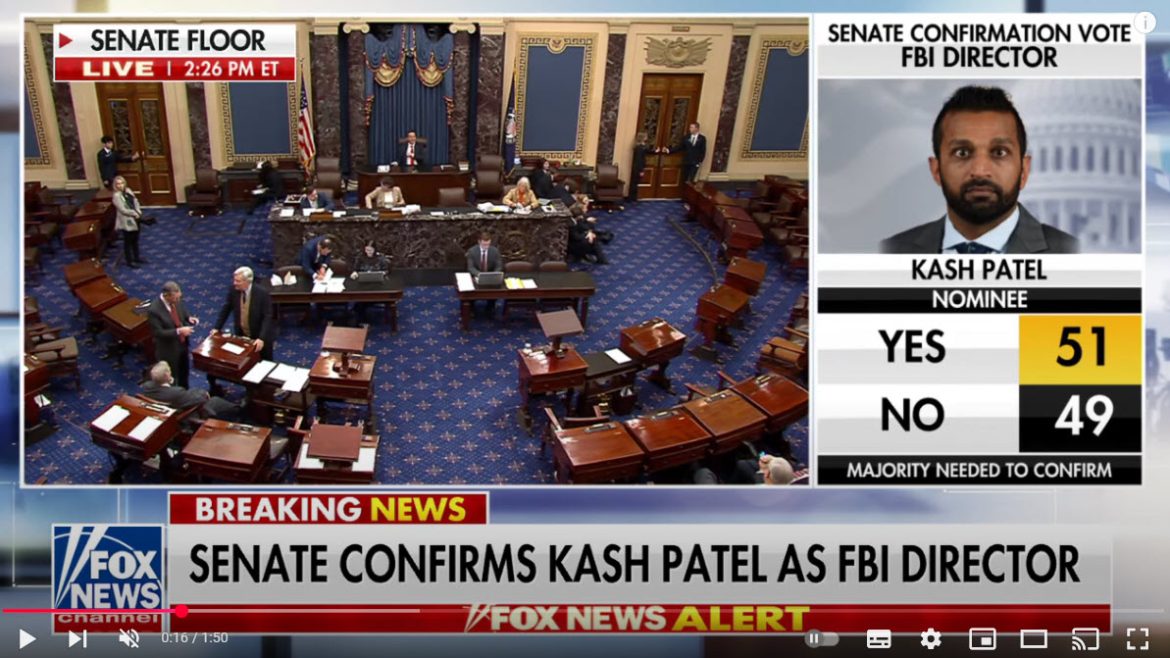In a closely contested decision, the U.S. Senate has confirmed Kash Patel as the new Director of the Federal Bureau of Investigation (FBI) with a 51-49 vote. Republican Senators Lisa Murkowski of Alaska and Susan Collins of Maine joined all Democrats in opposing the nomination. Patel, a known loyalist to President Donald Trump, has been a polarizing figure due to his previous roles and public statements.
Patel’s nomination has been contentious, with critics expressing concerns over his perceived partisanship and lack of traditional law enforcement experience. Democratic Senator Alex Padilla of California warned that Patel might be utilized by the White House to target President Trump’s perceived adversaries. Similarly, Senator Adam Schiff voiced apprehension that Patel would not prioritize the public’s best interests.
Supporters of Patel argue that his leadership will bring much-needed reform to the FBI. Senate Judiciary Committee Chairman Chuck Grassley described him as the “right man at the right time,” emphasizing Patel’s commitment to reducing the FBI’s involvement in politics and domestic surveillance.
During his confirmation hearing, Patel faced intense questioning regarding his past statements and affiliations. He has been criticized for referring to individuals involved in the January 6 Capitol riot as “political prisoners” and for his appearances on platforms promoting conspiracy theories. Despite these controversies, Patel assured the committee of his dedication to restoring public trust in the FBI and addressing internal biases.
The confirmation follows the resignation of former FBI Director Christopher Wray, who faced criticism from President Trump and some Republican lawmakers over his handling of investigations related to the Trump administration. Patel’s appointment is expected to signal a significant shift in the bureau’s direction, aligning more closely with the current administration’s priorities.
As Patel assumes leadership of the FBI, the agency stands at a crossroads, confronting challenges related to political impartiality, public trust, and internal morale. His tenure will likely be scrutinized closely by both supporters and detractors, reflecting the deep divisions surrounding his confirmation.



